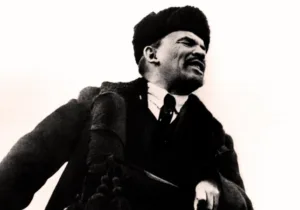Last eve I attended an enjoyable and informative dinner talk on German politics and transatlantic relations hosted by the Hanns Seidel Foundation, a think tank associated with Germany’s Christian Social Union (CSU), the Bavarian conservative party that’s junior partner to the larger Christian Democratic Union. Dinner was at the Army Navy Club, which is full of glorious art about American military triumph. I apprehensively glanced around the room for paintings of Americans defeating Germans, but there were none. We were in the John Paul Jones Room, honoring the Revolutionary War naval hero.
One speaker, a CSU office holder, cited the surrounding U.S. military art in appreciation of America’s military prowess, which he recalled had liberated Europe from tyranny in favor of democracy. To applause, he said Germany remains grateful and still looks to America for leadership in defense of democracy and human rights. The Hanns Seidel Foundation is named for a Bavarian statesman who had resisted Hitler and whom occupying U.S. troops invited back into leadership after the war thanks to his anti-Nazi bonafides.
Coincidentally yesterday the last WWII head of state to oppose Naziism, Romania’s King Michael I, died at age 96. (Another WWII monarch, King Simeon II of Bulgaria, still lives but was only a child at the time.) Michael became king at age five and later as a youth was forced to accede to pro-Nazi rule by Ion Antonescu, who led România into war with the Soviets alongside Germany. In 1944 at age 22 King Michael found the courage to arrest Antonescu and declare war against Germany, for which the Luftwaffe bombed his palace.
The alternative for Romania was tragically unhappy, as the Soviets displaced Germany and imposed Communism, forcing Michael into exile in 1947. From Switzerland he delivered Christmas radio broadcasts to his captive countrymen via Voice of America. On Christmas Day 1989 România overthrew and executed their despised communist dictator Ceausescu. The following Christmas King Michael, who was Orthodox, returned to exultant crowds, prompting the new and jealous regime to demand his departure. His schedule almost liturgical, he later returned for an Easter visit, prompting more anxiety and another forced departure, but eventually he gained wider acceptance, facilitating longer visits and a 2011 address to Romania’s parliament when he was age 90.
“Eighty-four years since I became king, I can say without hesitation to the Romanian nation: After freedom and democracy, the most important things to be gained are identity and dignity,” King Michael declared.
Freedom and democracy have been rare and hard won treasures for Romania and much of Europe. King Michael’s nearly one century of life encompassed incomprehensible chaos and suffering for his nation and Europe, with much of the world. The current moment of democratic rule and relative peace should be cherished by all who enjoy it.
The CSU Germans last eve with whom I dined, most of them Catholic Bavarians, seemed to appreciate the special responsibility to safeguard liberty, peace and security, especially against the rise of authoritarianism embodied by Putin, Erdogan and others who loom on the edges of Europe.
The values they seek to preserve are the patrimony of old Christendom, once embodied by monarchs like King Michael I, who were among the last resistance to Nazi and Communist revolution. Defiance of current and future threats, ideological and military, will require remembrance of Christendom and preservation of a strong military, as represented on the fierce walls of the Army Navy Club.






